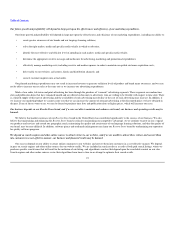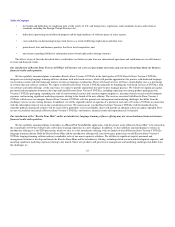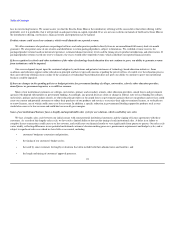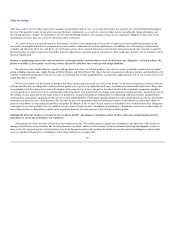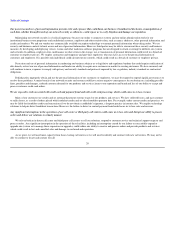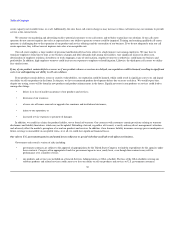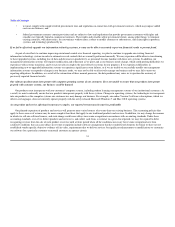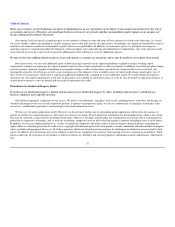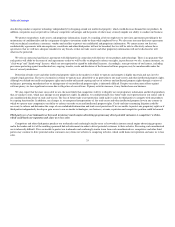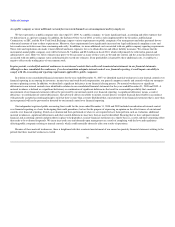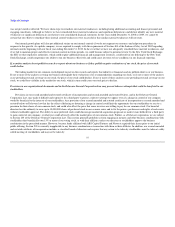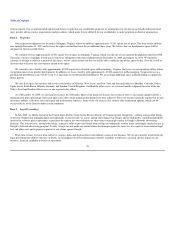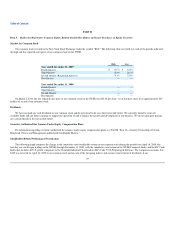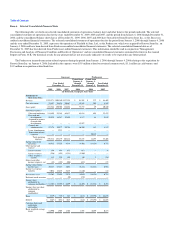Rosetta Stone 2009 Annual Report Download - page 33
Download and view the complete annual report
Please find page 33 of the 2009 Rosetta Stone annual report below. You can navigate through the pages in the report by either clicking on the pages listed below, or by using the keyword search tool below to find specific information within the annual report.
Table of Contents
we must comply with complex federal procurement laws and regulations in connection with government contracts, which may impose added
costs on our business; and
federal government contracts contain provisions and are subject to laws and regulations that provide government customers with rights and
remedies not typically found in commercial contracts. These rights and remedies allow government clients, among other things, to terminate
existing contracts, with short notice, for convenience without cause, reduce or modify contracts or subcontracts, and claim rights in products,
systems, and technology produced by us.
If we fail to effectively upgrade our information technology systems, we may not be able to accurately report our financial results or prevent fraud.
As part of our efforts to continue improving our internal control over financial reporting, we plan to continue to upgrade our existing financial
information technology systems in order to automate several controls that are currently performed manually. We may experience difficulties in transitioning
to these upgraded systems, including loss of data and decreases in productivity, as personnel become familiar with these new systems. In addition, our
management information systems will require modification and refinement as we grow and as our business needs change, which could prolong difficulties we
experience with systems transitions, and we may not always employ the most effective systems for our purposes. If we experience difficulties in
implementing new or upgraded information systems or experience significant system failures, or if we are unable to successfully modify our management
information systems or respond to changes in our business needs, we may not be able to effectively manage our business and we may fail to meet our
reporting obligations. In addition, as a result of the automation of these manual processes, the data produced may cause us to question the accuracy of
previously reported financial results.
Our software products must interoperate with computer operating systems of our customers. If we are unable to ensure that our products interoperate
properly with customer systems, our business could be harmed.
Our products must interoperate with our customers' computer systems, including student learning management systems of our institutional customers. As
a result, we must continually ensure that our products interoperate properly with these systems. Changes in operating systems, the technologies we incorporate
into our products or the computer systems our customers use may damage our business. For example, our online Version 2 software subscriptions, which we
offer in six languages, does not currently operate properly with the newly released Microsoft Windows 7 and Mac OS X operating systems.
As our product and service offerings become more complex, our reported revenue may become less predictable.
Our planned expansion of products and services will generate more varied sources of revenue than our existing business. The accounting policies that
apply to these sources of revenue may be more complex than those that apply to our traditional products and services. In addition, we may change the manner
in which we sell our software licenses, and such change could cause delays in revenue recognition in accordance with accounting standards. Under these
accounting standards, even if we deliver products and services to, and collect cash from, a customer in a given fiscal period, we may be required to defer
recognizing revenue from the sale of such product or service until a future period when all the conditions necessary for revenue recognition have been
satisfied. Conditions that can cause delays in revenue recognition include software arrangements that have undelivered elements for which we have not yet
established vendor specific objective evidence of fair value, requirements that we deliver services for significant enhancements or modifications to customize
our software for a particular customer or material customer acceptance criteria.
31
•
•


